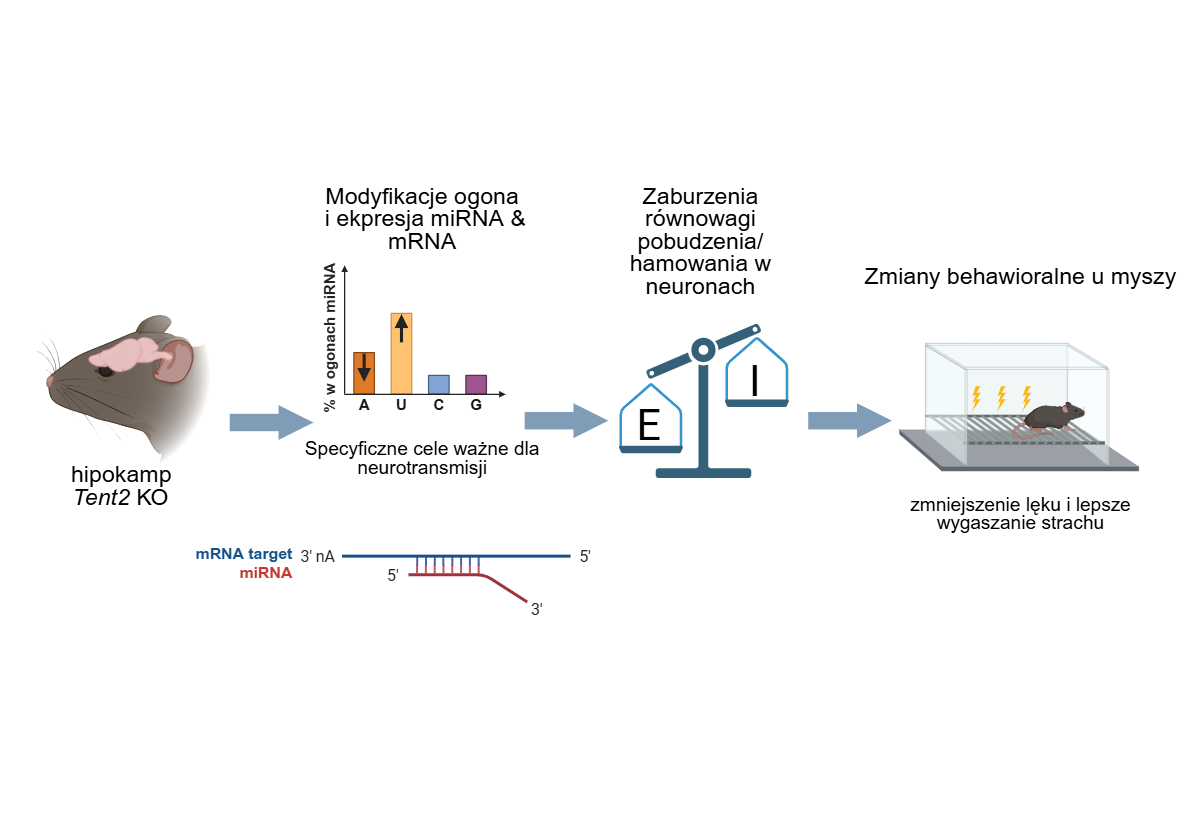New publication by our team: altered excitation-inhibition balance in the brain of Tent2 KO mice

Prof Magdalena Dziembowska’s team, in collaboration with the RNA Biology Laboratory from the International Institute of Molecular and Cell Biology in Warsaw and Prof Clive Bramham’s team from the University of Bergen, has published the results of a study on the effect of TENT2 gene deletion on brain function.
The TENT2 enzyme is a terminal nucleotidyltransferase responsible for so-called “tailing”, the addition of non-coding nucleotides at the 3′ end of RNA molecules. A new mouse model with the Tent2 gene turned off (knockout) was created to investigate how the absence of this enzyme affects RNA modifications in the hippocampus – a brain structure crucial for memory and emotion.
The results show that a lack of TENT2 leads to:
increased excitability of hippocampal neurons (based on electrophysiological measurements),
reduced anxiety levels and improved fear memory extinction in mice,
changes in miRNA monoadenylation (i.e. addition of single adenosines to the 3′ end),
no effect on the lengths of the total poly(A) tails of mRNAs,
reduced expression of genes associated with synaptic transmission.
These findings point to a novel mechanism by which TENT2 – by regulating miRNA modifications – may influence the balance between excitatory and inhibitory neurotransmission in the brain.
The publication represents an important step in understanding the role of post-transcriptional RNA modifications in the regulation of neuronal function and behaviour.
Article available at https://rnajournal.cshlp.org/content/31/6/756